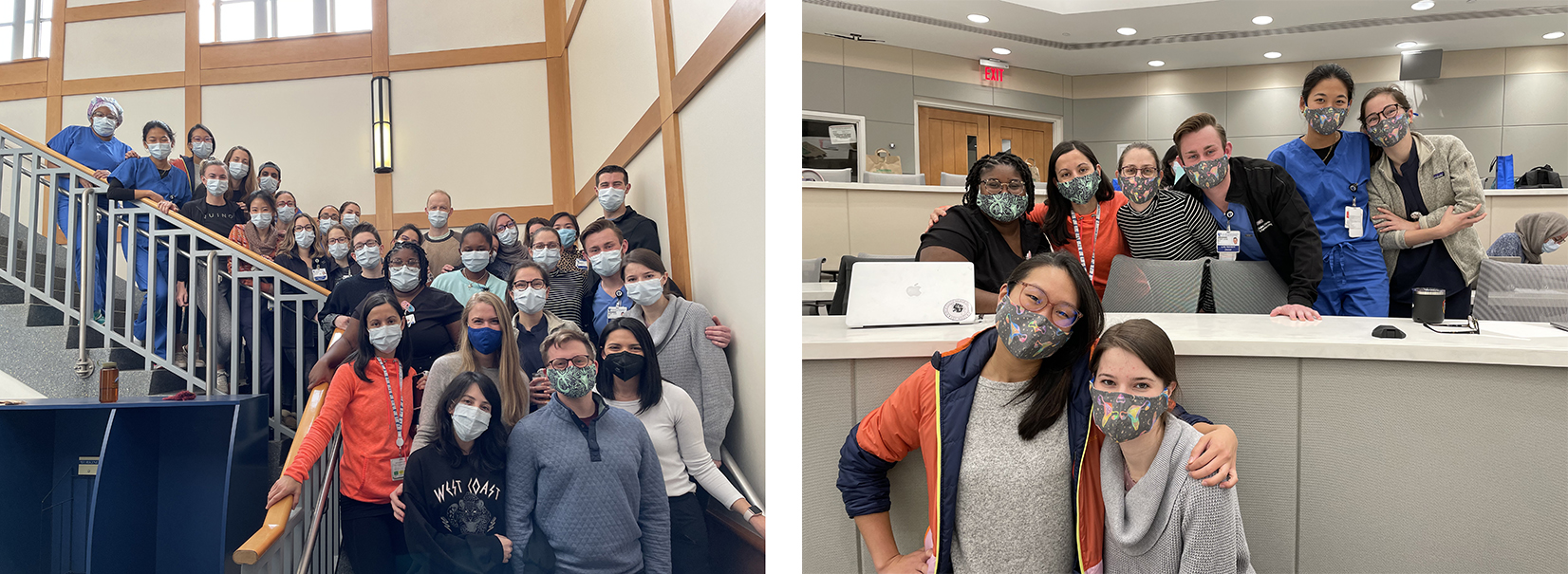
The Duke obstetrics and gynecology residency program has a robust curriculum with exposure to clinical care and surgical training in all four sub-specialty areas in obstetrics and gynecology.
PGY I
The first year concentrates on the essential components in the practice of obstetrics and gynecology in a number of diagnostic, therapeutic and surgical modalities. Also included is the introduction to high-risk obstetrics, gynecology, and the complexities of care for hospitalized patients on gynecology, oncology and endocrinology.
- 3 Rotations in Obstetrics (2 day time, 1 night float)
- 1 Rotation in Benign Gynecology
- 1 Rotation in Ultrasound
- 1 Rotation in Gynecologic Oncology
- 1 and 1/2 Rotations in Primary Care (VA and Private OB/GYN clinic)
- 1/2 Rotation in Emergency Medicine
PGY II
The second year focuses on advanced obstetrics management and techniques, recognition of medical and surgical procedures that complicate pregnancy, participation as primary surgeon in selected cases, and evaluation and management of endocrine inpatients.
- 2 Rotations in Obstetrics (1 day time, 1 night float)
- 1 Rotation in Gynecologic Oncology
- 2 Rotations in Benign Gynecologic Surgery
- 1 Rotation in Reproductive Endocrinology & Fertility
- 1 Rotation in Urogynecology and Reconstructive Pelvic Surgery
- 1 Rotations in Primary Care ("Outrider" clinics)
PGY III
The third year emphasizes surgical and nonsurgical gynecologic treatment of female reproductive tract disorders, progressive responsibility in care of disorders associate with infertility, and graduated surgical experience with oncology patients. While residents are not expected to master advanced techniques related to each sub specialty there are set criteria to be acquired in each area. A one month elective is offered to third year students.
- 2 Rotations in Obstetrics (1 day time, 1 night float)
- 3 Rotations in Benign Gynecologic Surgery
- 1 Rotation in Oncology
- 1 Rotation in Family Planning
- 1 Elective Rotation
PGY IV
The fourth year of residency further develops surgical and obstetric techniques, as well as leadership skills. Chief residents assume administrative responsibilities for junior residents. They contribute to the formal education of the department by presenting Grand Rounds during this year.
- 3 Rotations in Obstetrics (1 day time, 1 night float, 1 clinic)
- 1 Rotation in Reproductive Endocrinology & Fertility
- 2 Rotations in Benign Gynecology
- 1 Rotation in Gynecologic Oncology
- 1 Rotation in Urogynecology and Reconstructive Pelvic Surgery